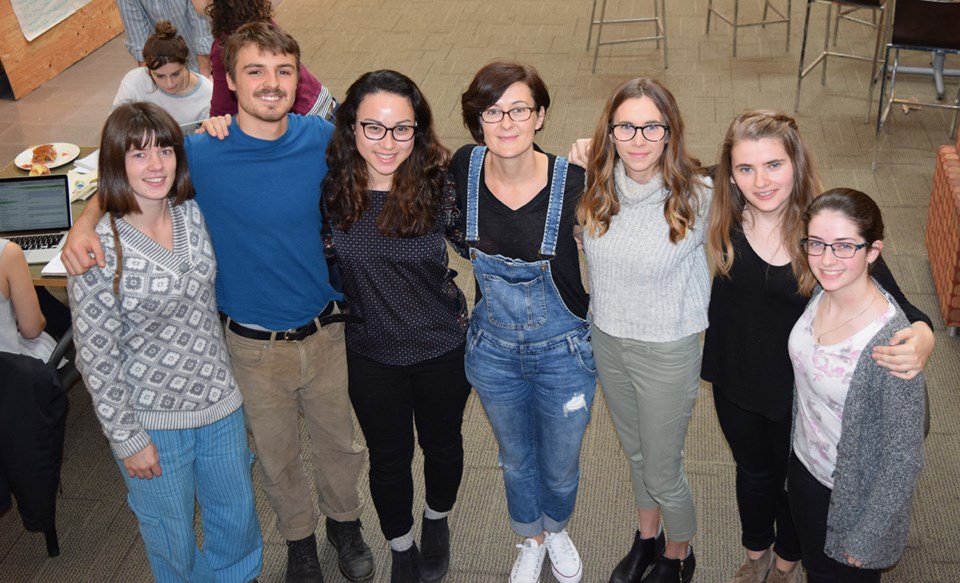A class of Quest University students is standing with Squamish’s Byrdie Funk.
Funk has been publicly fighting to have Canada’s Citizenship Act changed so people like her are no longer “lost Canadians.”
Funk falls into a group of people who, although raised in Canada, were born elsewhere and lost their citizenship because they didn’t register with the federal government before they turned 28.
The students met Funk and discussed her case in class.
“I could only imagine what it would be like to lose a massive part of my identity – to lose my citizenship – even though I am a natural born Canadian,” said student Ellen Fraser.
For Arizona-born Elijah Cetas, Funk’s story speaks to how citizenship can determine the way the government interacts with its citizens.
Because Arizona is so close to the Mexican border there are checkpoints and huge implications for those who interact with local authorities, he said.
“It is radically different than other states just because of this question of citizenship,” he said.
“With Byrdie’s case what was so interesting to me is the way in which suddenly there’s this loss of trust between you and the government and that is really scary.”
Squamish Coun. Karen Elliott said she can empathize with Funk’s situation. Elliott was abroad for the birth of her second child and discovered her baby daughter would not have citizenship or a passport until a citizenship application was processed, which took about a year.
“It’s easy to take your rights of citizenship for granted until someone tells you that you’ve lost them or they are threatened,” Elliott said. “The lost Canadians deserve the right to citizenship and the government of the day should take the actions necessary to amend the Citizenship Act. And while they’re at it, perhaps they can review how they enable Canadians born abroad today to promptly claim their citizenship papers and a passport.”
Funk’s case was a stunning way to have her students question if democracy is just, professor Leanne Roderick said.
“What better way than to have a walking, talking case study to come in and she so graciously shared her story,” she said.
“While I am sorry this had to happen to her or to anybody, she’s done such an amazing job of not just making it about herself but also trying to address this widespread injustice.”
The class wrote up policy briefs that outlined Funk’s case and other citizenship issues and they offered various fixes that the federal government could employ to rectify the situation for Funk and hundreds of others like her across Canada.
The students sent their policy briefs to Sea to Sky Member of Parliament Pamela Goldsmith-Jones.
“Thank you to the Quest University students for their analysis of Canada’s Citizenship Act, with particular regard to local resident Byrdie Funk and the serious dilemma of the ‘age 28 rule,’” said Goldsmith-Jones in an email to The Squamish Chief.
“I have shared these briefs with Minister [John] McCallum, in our office’s ongoing effort to champion Ms. Funk’s case, and to encourage a change to this anachronistic piece of legislation. As identified in some of the briefs from Quest students, there may not be a one-size fits all fix.”
Funk said it is exciting to see the students picking up the cause.
“The more young people that get involved, I think that will make a shift and that will make a difference,” she said.



